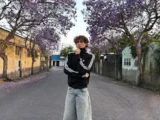
Aboki Naira to Dollar Black Market Exchange Rate Today, 18th July 2025
The black market exchange rate for the US Dollar (USD) to Nigerian Naira (NGN), popularly known as the “Aboki” rate, remains a critical indicator for many Nigerians navigating the country’s volatile foreign exchange market.
As of today, July 18, 2025, Bureau De Change (BDC) operators across major cities like Lagos, Abuja, Kano, and Port Harcourt report that the dollar is trading at an average buying rate of ₦1,600 and a selling rate of ₦1,610 in the parallel market.
Trending Now!!:
These rates reflect a marginal increase from yesterday’s figures of ₦1,595 (buying) and ₦1,605 (selling), as reported on July 17, 2025.The slight uptick in rates underscores the persistent pressure on the Naira, driven by high demand for dollars amid constrained supply through official channels.
The Central Bank of Nigeria (CBN) continues to discourage transactions in the black market, urging individuals and businesses to use authorized banks for foreign exchange. However, the official CBN rate, reported at approximately ₦1,524.86 on July 17, 2025, remains significantly lower than the parallel market rates, highlighting the ongoing disparity between the official and black markets.
Based on today’s black market selling rate, $1 equals ₦1,610, $50 equals ₦80,500, $100 equals ₦161,000, and $1,000 equals ₦1,610,000. The black market remains a vital source of foreign currency for many Nigerians, particularly those involved in international trade, travel, education, and other cross-border transactions.
The high demand for dollars, fueled by Nigeria’s reliance on imports and limited foreign exchange reserves, continues to drive the premium on black market rates. Analysts note that the gap between official and parallel market rates reflects broader economic challenges, including import dependency and fluctuating foreign investment.
The CBN has consistently warned against the use of the parallel market due to risks such as scams and counterfeit currency. Despite these cautions, the black market’s accessibility and ability to meet immediate dollar demands make it a preferred option for many.
Rates can vary slightly by location, transaction volume, and individual negotiations, with some dealers in Lagos quoting as low as ₦1,540 for buying and ₦1,545 for selling. Market observers attribute the Naira’s volatility to structural economic issues, including low non-oil export earnings and seasonal spikes in dollar demand for imports and overseas payments.
While the CBN has implemented interventions to stabilize the official rate, the black market continues to set the practical exchange rate for millions of Nigerians.
As Nigeria grapples with its foreign exchange challenges, the Aboki black market rate remains a key barometer of the Naira’s performance and the broader economic pressures facing the nation.

